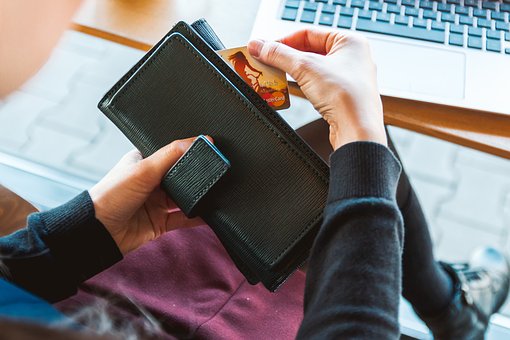Many people struggle with the impulse to shop, but in the midst of such might not realize when it’s spiraled out of control—and has formed into that of a full blown addiction. In fact, oftentimes, it is dismissed, and instantly zipped shut—within a wallet full of accumulating receipts. Consequently, this leaves little room for one to recognize certain behaviors, which might be the signal of a more serious problem. But, once one comes to terms with such, he/she can receive the help he/she needs a whole lot quicker. In turn, these nine signs are just a few of what one must look out for if he/she feels she is experiencing a shopping addiction.

First and foremost is “shopping or spending money as a result of feeling angry, depressed, anxious, or lonely”. Second is “having arguments with others about one’s shopping habits”. Third is “feeling lost without credit cards—actual going into withdrawal without them”. Fourth is “buying items on credit, rather than with cash”. Fifth is “describing a rush or a feeling of euphoria with spending”. Sixth is “feeling guilty, ashamed, or embarrassed after a spending spree”. Seventh is “lying about how much money was spent. For instance, owning up to buying something, but lying about how much the item actually cost”. Eighth is “thinking obsessively about money”. And ninth is “spending a lot of time juggling accounts or bills to accommodate spending”.
In terms of physically, the emotional response of a shopaholic causes them to make purchases—heavily based on feeling. For example, they might find themselves feeling down, and in response to such buy a series of items online, or in-store, in an attempt to cheer themselves up. But then, when they are unable to buy something that they want at the time, it can cause them to feel a great amount of melancholy. In addition to sadness, it can even cause them to feel tempered, due to the inability to obtain the item—no matter whether it’s clothes, house appliances, jewelry, etc.
In conclusion, those who struggle with such should not feel embarrassed and ashamed—or feel as though their addiction is of less importance (in comparison with those who are addicted to something else, such as alcohol, drugs, etc). Every addiction is significant and matters, therefore the sooner that the individual can come to terms with his/her behavior—and the reason behind it—the quicker he/she will be able to receive successful treatment/therapy.

